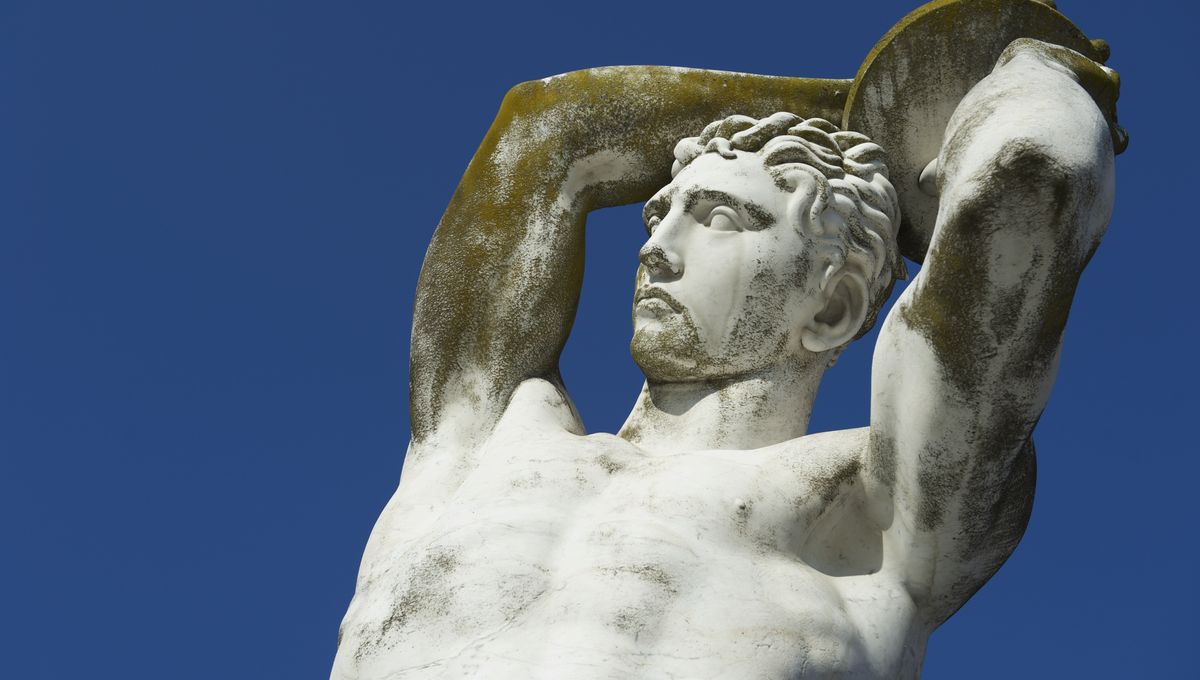
Mark Spitz and Michael Phelps may be among the greatest modern Olympians, but their exploits in the pool would not have found much appreciation in Ancient Greece. In fact, at no point in the history of the original Olympic Games did swimming feature as an event, despite the fact that most Greeks knew how to swim and even prided themselves on their aquatic competence.
The Ancient Olympics were held between the eighth and fourth centuries BCE and included events such as wrestling, boxing, and pentathlon. A popular insult from this period was to say that someone knew neither how to read nor swim, indicating that skill in the water was considered a respectable attribute. Exactly why the sport was never included in the Games has therefore baffled historians.
Seeking to solve the conundrum, some scholars have hypothesized that swimming was excluded because it was not seen as a military activity, and that all Olympic sports had to involve disciplines that were of use on the battlefield. However, the famous historian Herodotus has described how Greek soldiers were able to escape a massacre during the Persian Wars by swimming to safety, while other reports suggest that swimmers were used to deliver supplies to the besieged Spartans during the Peloponnesian War.
It has also been noted that many of the Ancient Olympic events had little to do with warfare and weren’t included in typical military training – the high jump and discus, to name just two.
Dismissing the military theory, Dr Edward Clayton from Central Michigan University has penned a new paper proposing that “swimming events did not take place [in the Ancient Olympics] because of the danger that such events could have been won by fisherman, oyster divers, or other men who earned their livelihood from swimming.”
According to Clayton, the Games were about far more than just sporting prowess. Rather, they provided an opportunity for contestants to display the beauty and excellence of their soul – a characteristic known as arete. “This meant that they needed to come from families which were capable of having such arete, and in Athens, this meant the aristocratic [class],” writes the author.
Fishers and others who swam as part of their occupation, however, would have belonged to the laboring class, known as the banausoi. By definition, then, they lacked the necessary arete to be considered athletes, and any event they might excel at could not therefore be considered an Olympic sport.
According to the likes of Aristotle, banausic activities degraded both body and soul rather than perfecting them, and it was generally accepted that no true athlete could use their body for economic gain. “It would be unthinkable to associate an athletic contest with an activity that was undertaken for money, or one that was undertaken by someone who needed to work for a living,” writes Clayton.
Ultimately, then, any event likely to be won by a man who lacked the prerequisites for a beautiful soul could never be included in an athletic competition, and swimming certainly fell into this category.
Moreover, the Ancient Greeks believed that arete was reflected in a man’s physical beauty, and the exhibition of this carnal quality was a vital component of all Olympic sports. According to the study author, this partially explains why Olympians competed butt naked, ensuring that their excellence was fully visible and enjoyable to all spectators.
“That athletic competitions had a strong erotic component for the ancient Greeks is beyond dispute,” writes Clayton. “Swimming events would not have allowed for this element of competition, since such competitions would have obviously taken place in the water, which would have substantially obscured the view of the competitors by the audience.”
“Their bodies would not have been seen glistening with oil and dust as were those of the other competitors,” he adds; “indeed, it would have been hard for them to be seen at all.”
The study is published in the Athens Journal of Sports.
Source Link: Why Swimming Wasn’t Allowed In The Ancient Olympics